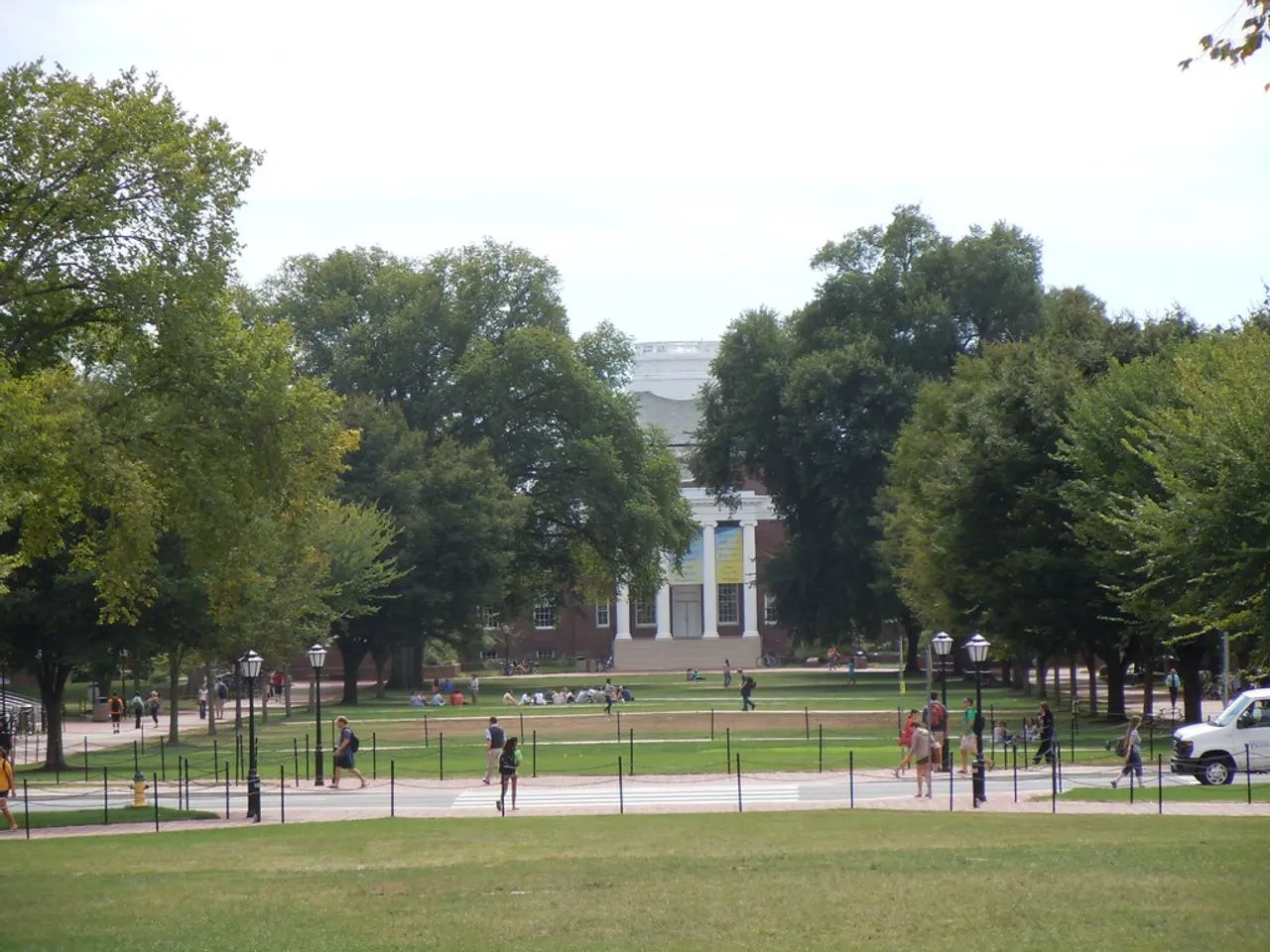Employing real-world situations in science education
Students at Toko School Embrace the Science of Distillation
A unique collaboration between Toko School, Venture Taranaki, Participatory Science Platform, and Curious Minds has seen students embark on an exciting distillation project that is transforming their learning experience.
The project, which started from a simple lavender hedge outside the library, has led the children to create brochures to inform parents, grandparents, and community members about hydrosols and their uses. This hands-on approach has brought real-life context to academic concepts, making multiplication tables more meaningful.
The students have been guided by Jim Bennett, an expert in distillation technology, who has shared his knowledge on the use of the still and explained different molecules and hydrosols. Sue Fergus, a teacher at the school, has also found herself taking on the role of a scientist during the project.
Sue Fergus and the children visited Jim Bennett's larger-scale still and Methanex, where they observed similar distillation processes. This real-world exposure has made the students see themselves as scientists and ask scientific questions.
The project has impacted Sue Fergus personally, as she found it amazing and it has given her a new understanding of the science process. She has also become more confident in taking on other scientific projects.
The children are making hydrosols and essential oils as part of the project. They wear lab coats, carry clipboards, and conduct investigations, making the learning process more engaging and practical.
The students' enthusiasm for the distillation project is contagious, and adults enjoy listening to them explain the process. The hydrosols and essential oils made by the children are used in the classroom and as cleaning products.
The project has helped students make progress in various curriculum areas, including reading, writing, math, and science. Working with scientists and experts has motivated the students to learn, linking their theoretical knowledge to real industrial processes like distillation.
Despite time constraints, the children's enthusiasm has made distilling a regular activity. The project has been a success, and it is clear that collaboration with experts and companies can significantly enhance students' learning.
However, more specific data and evaluation results are needed to detail the precise impact on science and other subject learning. General educational research and STEM project practices suggest positive effects on learning outcomes when students collaborate with experts and industry on real-world projects.
With the distillation project, Toko School students are not just learning about science; they are becoming scientists, asking questions, and applying their knowledge in a practical way. This approach to education is sure to inspire the next generation of scientists and engineers.
The unique collaboration between Toko School, Venture Taranaki, Participatory Science Platform, and Curious Minds has not only transformed the learning experience of students but also fueled their personal growth and self-development through the science of distillation, as they embody the roles of scientists and ask scientific questions.
By making hydrosols and essential oils as part of the project, the students' learning in areas such as reading, writing, math, and science is significantly enhanced, fostering a practical approach to education that inspires the next generation of scientists and engineers.




